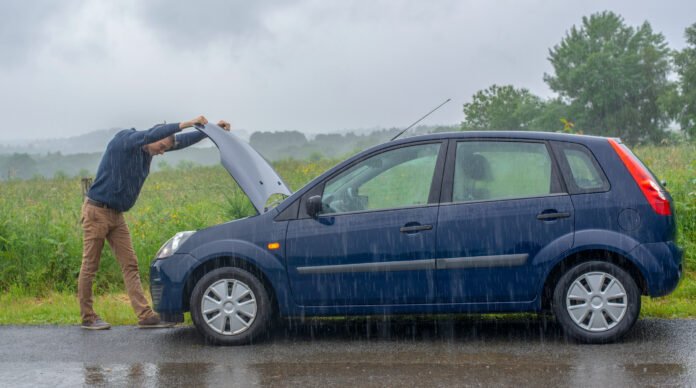Even a car that is regularly serviced, checked and looked after by its owner, cherished and even given a name by its family, will have a problem at some time – it’s almost inevitable.
And that’s exactly what used cars warranties are designed for.
They are there to give you peace of mind in the event of something going wrong. Especially if that journey to the repair shop turns out to be an expensive one. That’s when a warranty really comes into its own.
You paid good money for your cover and now you expect a decent service and satisfaction from your provider. So how do you claim on that policy that you thought about, considered carefully and decided was best to have in your armoury?
Time to make a claim
Actually, it’s quite straightforward – as long as you understand a few key points.
Firstly, don’t assume that every working part in your car is going to be covered by the warranty. Plan providers list in advance what they are prepared to consider covering and what is strictly off limits.
You will usually be covered for major working parts that a reasonable person would agree make up the important components of any vehicle. These will be items such as:
- Engine
- Gearbox
- Drivetrain
- Steering
- Brakes
- Suspension
- Fuel pump
- Ignition system
- Electrics
- Air conditioning
You won’t be covered for parts that wear out such as battery, clutch, tyres, brake pads or the exhaust pipe. Components that are damaged as a result of poor workmanship or maintenance are also excluded.
When you know you are going to have to make a claim, do it as soon as possible – don’t continue driving with a faulty part as this could harm other components, and your policy might not cover this ‘consequential damage’.
Some policies will ask you to take the car back to the dealer who originally sold it to you, for confirmation that a claim is legitimate and for an estimated cost for repair. If this is not possible, call your insurer’s claims hotline to report the issue, and then choose from their list of authorised repairers.
Stick to the rules
Don’t have any work done before you have reported the fault and don’t go to an unauthorised repairer. You could invalidate your policy in both cases.
Make sure you have kept your car’s servicing schedule up to date – most insurers will insist on this – and that the vehicle has a valid MOT certificate. The repairer will work out which components are covered by your insurer and report back to them.
Many providers will offer roadside assistance as part of their package while others will allow emergency repairs – such as to a broken down car at the roadside –if they’re required. You will need to obtain a receipt for the work, details of repairs carried out, and you must take away any replaced parts in case the insurer wants to see them.
Getting the payment made
It depends on your insurer, but payment for the repairs will be made direct to the garage or repair shop, or reimbursed to you when you have paid. You will have your excess amount deducted from the final figure (the more initially you agree to, the lower your premium), and you should pay this direct to the repairer if your provider settles up directly with them too.
Remember there are other reasons why you might not get the full cost of the part or repair that you were expecting. These will be set out in your policy and are worth knowing:
- Claim limit: There will be set thresholds on how much you can expect back for each repair
- Labour cost limit: insurers have a maximum hourly rate and if your repairer is above this, you might not get the full amount
- Mileage allowance: you must be within a set mileage range to keep your warranty valid
If you’re not happy…
If you and your insurer can’t agree on what should be covered, or if they refuse to pay for your claim, there are several courses of action for you:
- Check your policy’s terms and conditions: if the broken component is listed in the ‘What’s Covered’ section, you have a good case
- Look at the FAQs: most providers will have a frequently asked questions (FAQ) section which might help you
- Contact direct: you can contact them via their phone helpline or by email;
- Complain: if you are still unhappy, take your case higher, especially if your policy is covered by an insurer. Buying a fully insured warranty means you have the assurance that the company you’re dealing with is regulated by the Financial Conduct Authority (FCA). Additionally, a regulated warranty provider will be in the Financial Services Compensation Scheme (FSCS), which can pay compensation if they go out of business and can’t pay your claim. Buying an insured warranty means that if you are unhappy about the service you’ve received, you can go to the Financial Ombudsman Service (FOS) for a binding decision that your insurer is obliged to follow.
If your warranty is from the dealer where you bought the car, check if the company is covered by any industry body.
Warranty providers are diverse, but all will provide your cover information in their policy document. Read it carefully before taking out your policy and you won’t have any nasty surprises if the time comes to make that claim.
Here at The Car Expert, we have some fantastic warranty offers for our readers provided by our commercial partners. If you’re interested in a used car warranty, you should check these out:
- ALA Insurance provides used car warranties in conjunction with the RAC
- MotorEasy offers warranties and many other types of cover for car owners
- Warrantywise is a long-established and multi-award-winning warranty provider











